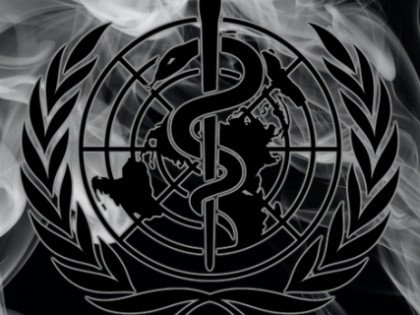“This demand comes in light of the upcoming Conference of the Parties (COP10) in Panama, where governments are discussing global strategies to address the tobacco epidemic", says Nancy Loucas, a public health policy expert and passionate advocate for tobacco harm reduction and executive coordinator of CAPHRA.
CAPHRA's critique aligns with the insights of Clive Bates, a renowned tobacco control expert, who has highlighted the WHO's counterproductive stance on safer nicotine alternatives such as vaping and heated tobacco products. Bates argues that the WHO's approach, which often leans towards prohibition, inadvertently protects the cigarette trade, fosters black markets, and prolongs the epidemic of smoking-related diseases.
“CAPHRA emphasises the need for the WHO and FCTC to engage with all stakeholders, including consumer groups, and to consider the full spectrum of scientific evidence when formulating policies”, said Ms Loucas.
“We believe that the focus should be on reducing the harm caused by smoked tobacco, which is the primary contributor to tobacco-related health issues”.
CAPHRA also calls for webcasting and public access to the entire COP10 meeting to ensure transparency and accountability.
“The positions adopted by delegates and observers should be open for all to see, fostering a more inclusive and evidence-driven dialogue”, said Ms Loucas.
In the spirit of the 20th anniversary of the adoption of the FCTC treaty, CAPHRA advocates for a re-evaluation of the treaty's approach to tobacco harm reduction, urging parties to consider the potential benefits of risk-proportionate regulations that protect public health while ensuring the availability of safer nicotine alternatives.
CAPHRA's call to action is clear: “It is time for the WHO and FCTC to embrace an evidence-based approach to tobacco harm reduction, one that acknowledges the potential of safer nicotine products to save lives and reduce the global burden of smoking-related diseases.”
The Coalition of Asia Pacific Tobacco Harm Advocates is a regional alliance of consumer tobacco harm reduction advocacy organisations. Its mission is to educate, advocate and represent the right of adult alternative nicotine consumers to access and use of products that reduce harm from tobacco use.
CAPHRA says it remains committed to advocating for the rights of consumers in the Asia-Pacific region to access and use evidence-based, regulated, and properly marketed harm reduction products as a means of reducing the devastating impact of smoking-related diseases.
“We encourage further research, open dialogue, and collaboration with governments, health organisations, and stakeholders to ensure the best possible outcomes for public health.”
References:
- The Coalition of Asia Pacific Tobacco Harm Reduction Advocates - https://caphraorg.net/
Dave Cross
Journalist at POTVDave is a freelance writer; with articles on music, motorbikes, football, pop-science, vaping and tobacco harm reduction in Sounds, Melody Maker, UBG, AWoL, Bike, When Saturday Comes, Vape News Magazine, and syndicated across the Johnston Press group. He was published in an anthology of “Greatest Football Writing”, but still believes this was a mistake. Dave contributes sketches to comedy shows and used to co-host a radio sketch show. He’s worked with numerous start-ups to develop content for their websites.
Join the discussion
CAPHRA Highlights Tobacco Control Flaws
The Coalition of Asia Pacific Tobacco Harm Reduction Advocates highlights the flaws in tobacco control which has led to the rise of black market in Australia
Alarm Regarding WHO’s Opacity
The Coalition of Asia Pacific Tobacco Harm Reduction Advocates sounds the alarm on WHO and FCTC's “disturbing lack of transparency”
Include Consumer Voices
Consumer advocacy organisation CAPHRA argues that consumer voices should be included when formulating tobacco harm reduction policies
Kiwi Progress
New Zealand is celebrating a significant reduction in smoking rates, prompting positive commentary from Emeritus Professor Robert Beaglehole






-listing400.jpg)




